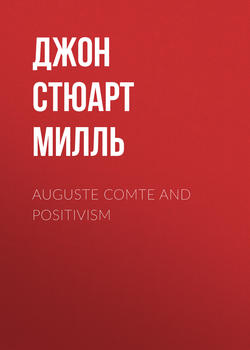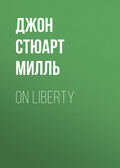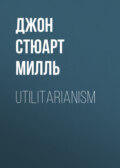
000
ОтложитьЧитал
There are many things eminently characteristic of M. Comte's second career, in this revision of the results of his first. Under the head of Biology, and for the better combination of that science with Sociology and Ethics, he found that he required a new system of Phrenology, being justly dissatisfied with that of Gall and his successors. Accordingly he set about constructing one è priori, grounded on the best enumeration and classification he could make of the elementary faculties of our intellectual, moral, and animal nature; to each of which he assigned an hypothetical place in the skull, the most conformable that he could to the few positive facts on the subject which he considered as established, and to the general presumption that functions which react strongly on one another must have their organs adjacent: leaving the localities avowedly to be hereafter verified, by anatomical and inductive investigation. There is considerable merit in this attempt, though it is liable to obvious criticisms, of the same nature as his own upon Gall. But the characteristic thing is, that while presenting all this as hypothesis waiting for verification, he could not have taken its truth more completely for granted if the verification had been made. In all that he afterwards wrote, every detail of his theory of the brain is as unhesitatingly asserted, and as confidently built upon, as any other doctrine of science. This is his first great attempt in the "Subjective Method," which, originally meaning only the subordination of the pursuit of truth to human uses, had already come to mean drawing truth itself from the fountain of his own mind. He had become, on the one hand, almost indifferent to proof, provided he attained theoretic coherency, and on the other, serenely confident that even the guesses which originated with himself could not but come out true.
There is one point in his later view of the sciences, which appears to us a decided improvement on his earlier. He adds to the six fundamental sciences of his original scale, a seventh under the name of Morals, forming the highest step of the ladder, immediately after Sociology: remarking that it might, with still greater propriety, be termed Anthropology, being the science of individual human nature, a study, when rightly understood, more special and complicated than even that of Society. For it is obliged to take into consideration the diversities of constitution and temperament (la réaction cérébrale des viscères végétatifs) the effects of which, still very imperfectly understood, are highly important in the individual, but in the theory of society may be neglected, because, differing in different persons, they neutralize one another on the large scale. This is a remark worthy of M. Comte in his best days; and the science thus conceived is, as he says, the true scientific foundation of the art of Morals (and indeed of the art of human life), which, therefore, may, both philosophically and didactically, be properly combined with it.
His philosophy of general history is recast, and in many respects changed; we cannot but say, greatly for the worse. He gives much greater development than before to the Fetishistic, and to what he terms the Theocratic, periods. To the Fetishistic view of nature he evinces a partiality, which appears strange in a Positive philosopher. But the reason is that Fetish-worship is a religion of the feelings, and not at all of the intelligence. He regards it as cultivating universal love: as a practical fact it cultivates much rather universal fear. He looks upon Fetishism as much more akin to Positivism than any of the forms of Theology, inasmuch as these consider matter as inert, and moved only by forces, natural and supernatural, exterior to itself: while Fetishism resembles Positivism in conceiving matter as spontaneously active, and errs only by not distinguishing activity from life. As if the superstition of the Fetishist consisted only in believing that the objects which produce the phaenomena of nature involuntarily, produce them voluntarily. The Fetishist thinks not merely that his Fetish is alive, but that it can help him in war, can cure him of diseases, can grant him prosperity, or afflict him with all the contrary evils. Therein consists the lamentable effect of Fetishism – its degrading and prostrating influence on the feelings and conduct, its conflict with all genuine experience, and antagonism to all real knowledge of nature.
M. Comte had also no small sympathy with the Oriental theocracies, as he calls the sacerdotal castes, who indeed often deserved it by their early services to intellect and civilization; by the aid they gave to the establishment of regular government, the valuable though empirical knowledge they accumulated, and the height to which they helped to carry some of the useful arts. M. Comte admits that they became oppressive, and that the prolongation of their ascendancy came to be incompatible with further improvement. But he ascribes this to their having arrogated to themselves the temporal government, which, so far as we have any authentic information, they never did. The reason why the sacerdotal corporations became oppressive, was because they were organized: because they attempted the "unity" and "systematization" so dear to M. Comte, and allowed no science and no speculation, except with their leave and under their direction. M. Comte's sacerdotal order, which, in his system, has all the power that ever they had, would be oppressive in the same manner; with no variation but that which arises from the altered state of society and of the human mind.
M. Comte's partiality to the theocracies is strikingly contrasted with his dislike of the Greeks, whom as a people he thoroughly detests, for their undue addiction to intellectual speculation, and considers to have been, by an inevitable fatality, morally sacrificed to the formation of a few great scientific intellects, – principally Aristotle, Archimedes, Apollonius, and Hipparchus. Any one who knows Grecian history as it can now be known, will be amazed at M. Comte's travestie of it, in which the vulgarest historical prejudices are accepted and exaggerated, to illustrate the mischiefs of intellectual culture left to its own guidance.
There is no need to analyze further M. Comte's second view of universal history. The best chapter is that on the Romans, to whom, because they were greater in practice than in theory, and for centuries worked together in obedience to a social sentiment (though only that of their country's aggrandizement), M. Comte is as favourably affected, as he is inimical to all but a small selection of eminent thinkers among the Greeks. The greatest blemish in this chapter is the idolatry of Julius Caesar, whom M. Comte regards as one of the most illustrious characters in history, and of the greatest practical benefactors of mankind. Caesar had many eminent qualities, but what he did to deserve such praise we are at a loss to discover, except subverting a free government: that merit, however, with M. Comte, goes a great way. It did not, in his former days, suffice to rehabilitate Napoleon, whose name and memory he regarded with a bitterness highly honourable to himself, and whose career he deemed one of the greatest calamities in modern history. But in his later writings these sentiments are considerably mitigated: he regards Napoleon as a more estimable "dictator" than Louis Philippe, and thinks that his greatest error was re-establishing the Academy of Sciences! That this should be said by M. Comte, and said of Napoleon, measures the depth to which his moral standard had fallen.
The last volume which he published, that on the Philosophy of Mathematics, is in some respects a still sadder picture of intellectual degeneracy than those which preceded it. After the admirable résumé of the subject in the first volume of his first great work, we expected something of the very highest order when he returned to the subject for a more thorough treatment of it. But, being the commencement of a Synthèse Subjective, it contains, as might be expected, a great deal that is much more subjective than mathematical. Nor of this do we complain: but we little imagined of what nature this subjective matter was to be. M. Comte here joins together the two ideas, which, of all that he has put forth, are the most repugnant to the fundamental principles of Positive Philosophy. One of them is that on which we have just commented, the assimilation between Positivism and Fetishism. The other, of which we took notice in a former article, was the "liberté facultative" of shaping our scientific conceptions to gratify the demands not solely of objective truth, but of intellectual and aesthetic suitability. It would be an excellent thing, M. Comte thinks, if science could be deprived of its sécheresse, and directly associated with sentiment. Now it is impossible to prove that the external world, and the bodies composing it, are not endowed with feeling, and voluntary agency. It is therefore highly desirable that we should educate ourselves into imagining that they are. Intelligence it will not do to invest them with, for some distinction must be maintained between simple activity and life. But we may suppose that they feel what is done to them, and desire and will what they themselves do. Even intelligence, which we must deny to them in the present, may be attributed to them in the past. Before man existed, the earth, at that time an intelligent being, may have exerted "its physico-chemical activity so as to improve the astronomical order by changing its principal coefficients. Our planet may be supposed to have rendered its orbit less excentric, and thereby more habitable, by planning a long series of explosions, analogous to those from which, according to the best hypotheses, comets proceed. Judiciously reproduced, similar shocks may have rendered the inclination of the earth's axis better adapted to the future wants of the Grand Etre. A fortiori the Earth may have modified its own figure, which is only beyond our intervention because our spiritual ascendancy has not at its disposal a sufficient material force." The like may be conceived as having been done by each of the other planets, in concert, possibly, with the Earth and with one another. "In proportion as each planet improved its own condition, its life exhausted itself by excess of innervation; but with the consolation of rendering its self-devotion more efficacious, when the extinction of its special functions, first animal, and finally vegetative, reduced it to the universal attributes of feeling and activity."25 This stuff, though he calls it fiction, he soon after speaks of as belief (croyance), to be greatly recommended, as at once satisfying our natural curiosity, and "perfecting our unity" (again unity!) "by supplying the gaps in our scientific notions with poetic fictions, and developing sympathetic emotions and aesthetic inspirations: the world being conceived as aspiring to second mankind in ameliorating the universal order under the impulse of the Grand Etre." And he obviously intends that we should be trained to make these fantastical inventions permeate all our associations, until we are incapable of conceiving the world and Nature apart from them, and they become equivalent to, and are in fact transformed into, real beliefs.
Wretched as this is, it is singularly characteristic of M. Comte's later mode of thought. A writer might be excused for introducing into an avowed work of fancy this dance of the planets, and conception of an animated Earth. If finely executed, he might even be admired for it. No one blames a poet for ascribing feelings, purposes, and human propensities to flowers. Because a conception might be interesting, and perhaps edifying, in a poem, M. Comte would have it imprinted on the inmost texture of every human mind in ordinary prose. If the imagination were not taught its prescribed lesson equally with the reason, where would be Unity? "It is important that the domain of fiction should become as systematic as that of demonstration, in order that their mutual harmony may be conformable to their respective destinations, both equally directed towards the continual increase of unity, personal and social."26
Nor is it enough to have created the Grand Fétiche (so he actually proposes to call the Earth), and to be able to include it and all concrete existence in our adoration along with the Grand Etre. It is necessary also to extend Positivist Fetishism to purely abstract existence; to "animate" the laws as well as the facts of nature. It is not sufficient to have made physics sentimental, mathematics must be made so too. This does not at first seem easy; but M. Comte finds the means of accomplishing it. His plan is, to make Space also an object of adoration, under the name of the Grand Milieu, and consider it as the representative of Fatality in general. "The final unity disposes us to cultivate sympathy by developing our gratitude to whatever serves the Grand Etre. It must dispose us to venerate the Fatality on which reposes the whole aggregate of our existence." We should conceive this Fatality as having a fixed seat, and that seat must be considered to be Space, which should be conceived as possessing feeling, but not activity or intelligence. And in our abstract speculations we should imagine all our conceptions as located in free Space. Our images of all sorts, down to our geometrical diagrams, and even our ciphers and algebraic symbols, should always be figured to ourselves as written in space, and not on paper or any other material substance. M. Comte adds that they should be conceived as green on a white ground.
We cannot go on any longer with this. In spite of it all, the volume on mathematics is full of profound thoughts, and will be very suggestive to those who take up the subject after M. Comte. What deep meaning there is, for example, in the idea that the infinitesimal calculus is a conception analogous to the corpuscular hypothesis in physics; which last M. Comte has always considered as a logical artifice; not an opinion respecting matters of fact. The assimilation, as it seems to us, throws a flood of light on both conceptions; on the physical one still more than the mathematical. We might extract many ideas of similar, though none perhaps of equal, suggestiveness. But mixed with these, what pitiable niaiseries! One of his great points is the importance of the "moral and intellectual properties of numbers." He cultivates a superstitious reverence for some of them. The first three are sacred, les nombres sacrés: One being the type of all Synthesis, Two of all Combination, which he now says is always binary (in his first treatise he only said that we may usefully represent it to ourselves as being so), and Three of all Progression, which not only requires three terms, but as he now maintains, never ought to have any more. To these sacred numbers all our mental operations must be made, as far as possible, to adjust themselves. Next to them, he has a great partiality for the number seven; for these whimsical reasons: "Composed of two progressions followed by a synthesis, or of one progression between two couples, the number seven, coming next after the sum of the three sacred numbers, determines the largest group which we can distinctly imagine. Reciprocally, it marks the limit of the divisions which we can directly conceive in a magnitude of any kind." The number seven, therefore, must be foisted in wherever possible, and among other things, is to be made the basis of numeration, which is hereafter to be septimal instead of decimal: producing all the inconvenience of a change of system, not only without getting rid of, but greatly aggravating, the disadvantages of the existing one. But then, he says, it is absolutely necessary that the basis of numeration should be a prime number. All other people think it absolutely necessary that it should not, and regard the present basis as only objectionable in not being divisible enough. But M. Comte's puerile predilection for prime numbers almost passes belief. His reason is that they are the type of irreductibility: each of them is a kind of ultimate arithmetical fact. This, to any one who knows M. Comte in his later aspects, is amply sufficient. Nothing can exceed his delight in anything which says to the human mind, Thus far shalt thou go and no farther. If prime numbers are precious, doubly prime numbers are doubly so; meaning those which are not only themselves prime numbers, but the number which marks their place in the series of prime numbers is a prime number. Still greater is the dignity of trebly prime numbers; when the number marking the place of this second number is also prime. The number thirteen fulfils these conditions: it is a prime number, it is the seventh prime number, and seven is the fifth prime number. Accordingly he has an outrageous partiality to the number thirteen. Though one of the most inconvenient of all small numbers, he insists on introducing it everywhere.
These strange conceits are connected with a highly characteristic example of M. Comte's frenzy for regulation. He cannot bear that anything should be left unregulated: there ought to be no such thing as hesitation; nothing should remain arbitrary, for l'arbitraire is always favourable to egoism. Submission to artificial prescriptions is as indispensable as to natural laws, and he boasts that under the reign of sentiment, human life may be made equally, and even more, regular than the courses of the stars. But the great instrument of exact regulation for the details of life is numbers: fixed numbers, therefore, should be introduced into all our conduct. M. Comte's first application of this system was to the correction of his own literary style. Complaint had been made, not undeservedly, that in his first great work, especially in the latter part of it, the sentences and paragraphs were long, clumsy, and involved. To correct this fault, of which he was aware, he imposed on himself the following rules. No sentence was to exceed two lines of his manuscript, equivalent to five of print. No paragraph was to consist of more than seven sentences. He further applied to his prose writing the rule of French versification which forbids a hiatus(the concourse of two vowels), not allowing it to himself even at the break between two sentences or two paragraphs; nor did he permit himself ever to use the same word twice, either in the same sentence or in two consecutive sentences, though belonging to different paragraphs: with the exception of the monosyllabic auxiliaries.[27] All this is well enough, especially the first two precepts, and a good way of breaking through a bad habit. But M. Comte persuaded himself that any arbitrary restriction, though in no way emanating from, and therefore necessarily disturbing, the natural order and proportion of the thoughts, is a benefit in itself, and tends to improve style. If it renders composition vastly more difficult, he rejoices at it, as tending to confine writing to superior minds. Accordingly, in the Synthèse Subjective, he institutes the following "plan for all compositions of importance." "Every volume really capable of forming a distinct treatise" should consist of "seven chapters, besides the introduction and the conclusion; and each of these should be composed of three parts." Each third part of a chapter should be divided into "seven sections, each composed of seven groups of sentences, separated by the usual break of line. Normally formed, the section offers a central group of seven sentences, preceded and followed by three groups of five: the first section of each part reduces to three sentences three of its groups, symmetrically placed; the last section gives seven sentences to each of its extreme groups. These rules of composition make prose approach to the regularity of poetry, when combined with my previous reduction of the maximum length of a sentence to two manuscript or five printed lines, that is, 250 letters." "Normally constructed, great poems consist of thirteen cantos, decomposed into parts, sections, and groups like my chapters, saving the complete equality of the groups and of the sections." "This difference of structure between volumes of poetry and of philosophy is more apparent than real, for the introduction and the conclusion of a poem should comprehend six of its thirteen cantos," leaving, therefore, the cabalistic numeber seven for the body of the poem. And all this regulation not being sufficiently meaningless, fantastic, and oppressive, he invents an elaborate system for compelling each of his sections and groups to begin with a letter of the alphabet, determined beforehand, the letters being selected so as to compose words having "a synthetic or sympathetic signification," and as close a relation as possible to the section or part to which they are appropriated.
Others may laugh, but we could far rather weep at this melancholy decadence of a great intellect. M. Comte used to reproach his early English admirers with maintaining the "conspiracy of silence" concerning his later performances. The reader can now judge whether such reticence is not more than sufficiently explained by tenderness for his fame, and a conscientious fear of bringing undeserved discredit on the noble speculations of his early career.
M. Comte was accustomed to consider Descartes and Leibnitz as his principal precursors, and the only great philosophers (among many thinkers of high philosophic capacity) in modern times. It was to their minds that he considered his own to bear the nearest resemblance. Though we have not so lofty an opinion of any of the three as M. Comte had, we think the assimilation just: thes were, of all recorded thinkers, the two who bore most resemblance to M. Comte. They were like him in earnestness, like him, though scarcely equal to him, in confidence in themselves; they had the same extraordinary power of concatenation and co-ordination; they enriched human knowledge with great truths and great conceptions of method; they were, of all great scientific thinkers, the most consistent, and for that reason often the most absurd, because they shrank from no consequences, however contrary to common sense, to which their premises appeared to lead. Accordingly their names have come down to us associated with grand thoughts, with most important discoveries, and also with some of the most extravagantly wild and ludicrously absurd conceptions and theories which ever were solemnly propounded by thoughtful men. "We think M. Comte as great as either of these philosophers, and hardly more extravagant. Were we to speak our whole mind, we should call him superior to them: though not intrinsically, yet by the exertion of equal intellectual power in a more advanced state of human preparation; but also in an age less tolerant of palpable absurdities, and to which those he has committed, if not in themselves greater, at least appear more ridiculous.
THE END.







